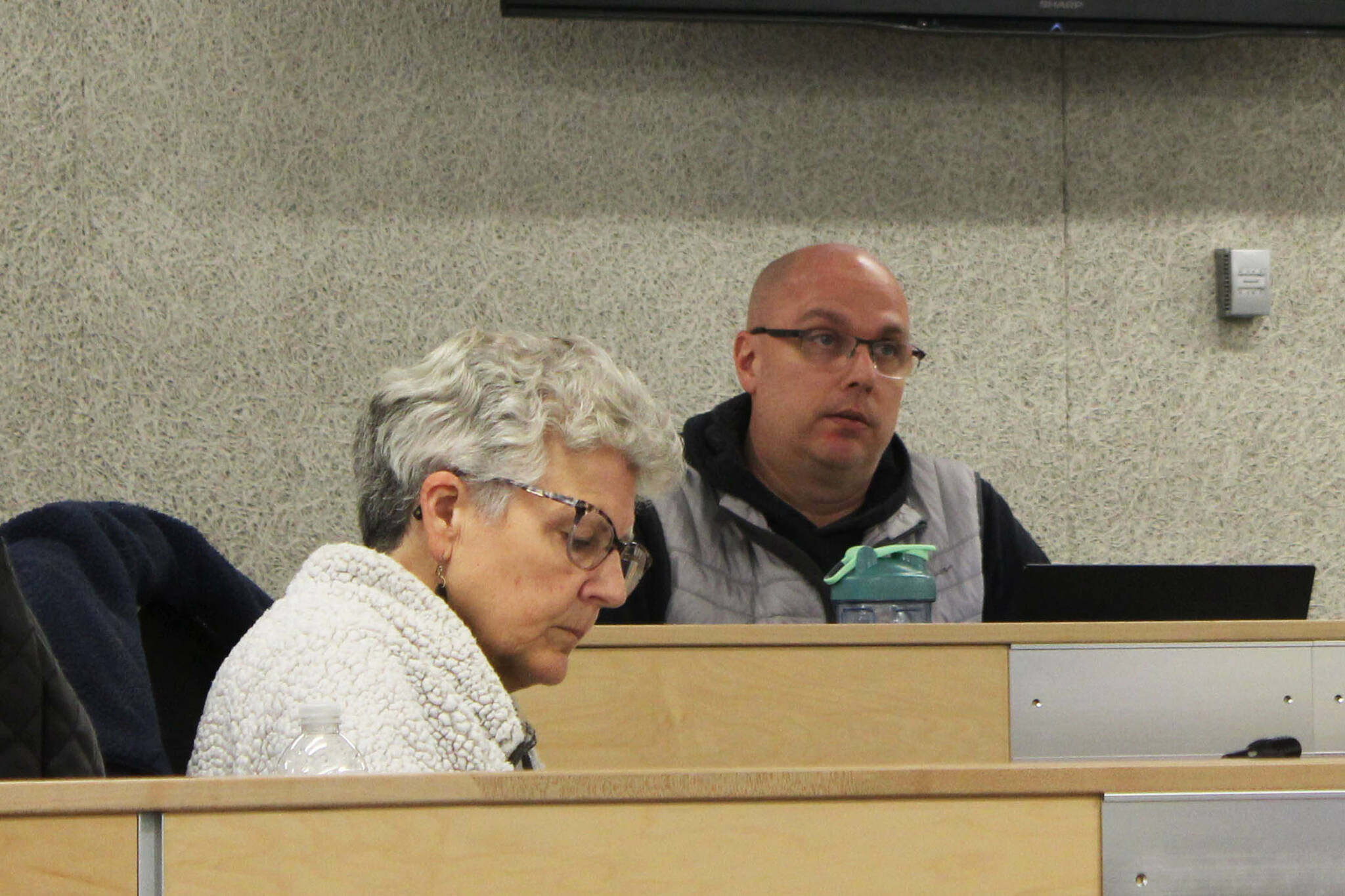The temporary committee of the Kenai Peninsula Borough School District’s Board of Education tasked with exploring the possibility of a four-day school week decided Tuesday to forgo a final meeting in June and instead deliver their recommendations for continued exploration to the full board in July.
Tuesday’s meeting was intended as a discussion about “pros and cons,” according to the committee’s chair, Jason Tauriainen. The group cited possibilities for saving money on transportation and substitutes — conversations that were central to their last meeting in May — but also grappled with cons.
Kenai Peninsula Educational Support Association President Susanna Litwiniak said that she had found studies indicating that other school districts who have transferred to a four-day model have seen declining test scores over time, as well as increased crime.
Also discussed were issues surrounding child care, uncertainties about where else kids can go if they’re not in school. Litwiniak said that “at-risk” children will find themselves disproportionately affected.
Tauriainen said he’s a big supporter of a four-day week and called the idea a “pet project.” He said new options for child care can be found, either through the existing Boys & Girls Clubs of the Kenai Peninsula or through new programs by the district. Identifying the costs of such programs, he said, is not the responsibility of the committee.
Dianne MacRae, a member of the school board who isn’t on the committee but who did attend Tuesday’s meeting, suggested the rental of school facilities to private entities like dance programs. The facilities are central and familiar to parents, she said, and some revenue might be taken from the effort.
Other pros described by the committee include access to the building on a weekday for maintenance crews to operate without students present and a potential hiring advantage.
The savings on substitute teachers alone, Tauriainen said during the May meeting, would likely be between $500,000 and $1 million.
Tauriainen also raised as a pro the option for teachers to use the extra day off to get a second job. Litwiniak said that teachers and support staff, as professionals, should not need to rely on second jobs. Tauriainen qualified his statement by pointing toward more side-gig-style options like hospitality — he said it’s something he would choose to take advantage of regardless of compensation as a teacher.
A major concern raised by Litwiniak was the question of whether reducing the days worked each week could impact retirement benefits. She said that those benefits already don’t accrue during summertime, when teachers aren’t actively teaching. Litwiniak asked whether teaching one fewer day each week would result in a similar slowdown. The group didn’t have any answers.
Despite that concern, the committee decided without objection to advance their recommendation of continued exploration of the idea to the full board. Litwiniak said continuing to collect information and consider the idea “couldn’t hurt.” Tauriainen and Nikkol Sipes were tasked with compiling a presentation for an undated July meeting of the board.
A full recording of the meeting will be made available on the school board’s BoardDocs website. Other information about the committee, including a draft calendar for a four-day school week, can also be found there.
Reach reporter Jake Dye at jacob.dye@peninsulaclarion.com.


